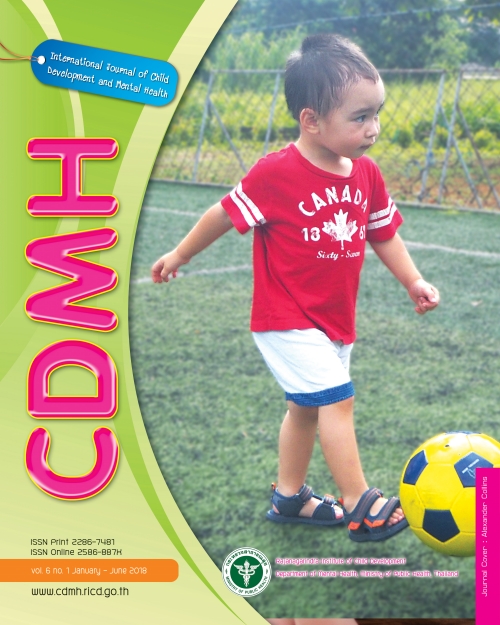Effectiveness of Behavioral Skills Training (BST) on Knowledge of Sexual Abuse and Resistance Ability among Children with Intellectual Disability: a pilot study
Main Article Content
Abstract
Sexual abuse among children with Intellectual Disability is 2-4 times the rate of the general population. 39% - 83% of girls and 16% - 32% of boys with Intellectual Disability typically experience sexual abuse by the time they reach the age of 18. In order to protect themselves, children with Intellectual Disability must have the skills to independently recognize potentially abusive situations and respond appropriately. The current study focused on assessing the effectiveness of Behavioural Skills Training on knowledge of sexual abuse and resistance ability among children with Intellectual Disability. A true experimental, pre-test post-test control group design was adopted. Study was conducted among 14 children with mild or moderate disability (7 in the experimental and control groups respectively), randomly selected from a selected special school. Pre-assessment of subjects was done using the Personal Safety Questionnaire (PSQ), and video based modified What If Situation test (WIST). BST was administered for one month (12 sessions). Post-assessment was done one week after the intervention. The Experimental Group demonstrated greater knowledge regarding sexual abuse (t=3.27, p=0.008) and resistance ability (WIST female t=5.85, p< 0.001, WIST male t=4.47, p=0.001) when compared to the control group. Current study findings suggest that BST is effective for children with mild or moderate Intellectual Disability in the experimental group. Further research with the same protocol to gain more subjects, Is suggested in order to confirm the result before being applied as a primary prevention intervention for child sexual abuse in children with Intellectual Disability.
Article Details
![]()
Creative Commons License
This work is licensed under a Creative Commons Attribution-NonCommercial-No Derivatives 4.0 International (CC BY-NC-ND 4.0)
The authors retain copyright and permit the journal the copyright of first publication
Articles, once having passed the review process and accepted for publication in the CDMH Journal, are copyrighted under the CDMH Journal, Department of Mental Health, Ministry of Public Health. Please be aware distribution of CDMH Journal content for commercial purposes without permission is expressly prohibited. However, distribution with intent to educate, advocate, or spread awareness within the general public and research communities is permitted and encouraged with the understanding that the CDMH Journal Editorial Board do not hold jurisdiction or liability for any accompanying comments, text, or information from third parties, either in favor for or against the original article’s assertions, conclusions, methodology, or content.


